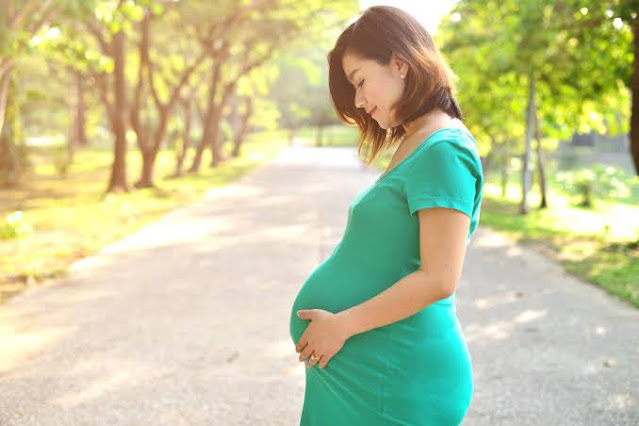Is advanced maternal age important in pregnancy?
Is advanced maternal age important in pregnancy?
 |
| Image Source - Google | Image by - parents |
The period we call the reproductive age in women begins with the adolescence when ovulation begins and continues until menopause. The start of ovulation and menstruation in a woman does not mean that it is suitable for reproduction in every sense. Because, individuals under the age of 20, including adolescence, are not ready for pregnancy both anatomically and psychologically. Similarly, problems related to aging occur in terms of reproduction in advanced ages. In short, the most suitable period for pregnancy is between the ages of 20 and 35. However, nowadays, marriage and pregnancy plans are inevitably postponed to advanced ages due to the fact that women take a more active role in education and working life and career prospects. Many women now give their first birth after their 30s.
If the maternal age is 35 years or more in a pregnancy, it is called 'Advanced Maternal Age'. The possibility of complications in mothers and babies increases in pregnancies at advanced ages. For this reason, pregnancies occurring after the age of 35 are considered as risky pregnancies. Age-related risks increase with increasing maternal age. These types of pregnancies are followed more closely.
On the other hand, defining these pregnancies as risky does not mean that there will be a certain problem, but patients should be informed about these risks and a tighter and more meticulous follow-up should be done.
Some of the risks that may occur in advanced pregnancy are as follows:
- The advanced age of the mother affects the egg quality negatively in the first place. Poor egg quality makes pregnancy difficult, and if it occurs, the risk of genetic abnormality or chromosomal abnormality in the baby increases. This risk increases further as the mother's age increases. In this sense, the most known genetic abnormality is Down Syndrome (Mongolian baby). The risk of having an abnormal baby in a healthy woman under the age of 30 is 1-2 per 1000 births. However, this risk starts to increase seriously after the age of 35, and after the age of 40 the risk increases 10-20 times.
The risk of miscarriage during pregnancy also increases in future mothers. This situation is also related to the increase in genetic abnormalities with aging. There is a serious increase in the risk of miscarriage, especially after the 40s.
- With the advancement of maternal age, the possibility of obtaining pregnancy in natural ways decreases. For this reason, the rate of obtaining advanced age pregnancies with assisted reproductive techniques, namely IVF or vaccination, is high. The risk of complications in pregnancies occurring with assisted reproductive techniques is higher than those that occur naturally. Especially in women with multiple pregnancies such as twins and triplets, miscarriage, preterm birth, baby abnormality rates and other pregnancy complications are higher. In addition, the risk of ectopic pregnancy is slightly higher than younger pregnancy.
- With the aging of mothers, conditions such as diabetes, blood pressure, heart diseases, which we define as chronic diseases, occur. These diseases, even if they are not normally present, occur during pregnancy, if present, they become severe during pregnancy. When such chronic diseases occur, they are dangerous to both the baby and the mother.
Problems related to the placenta (spouse) of the baby at the advanced maternal age are more common. Situations such as early separation of the placenta, placing it downward, being ahead are more common. The risk of bleeding and premature birth increases due to these. In addition, due to the deterioration of blood circulation with aging, the baby's placenta may not develop adequately, there is a risk of low birth weight and placental insufficiency.
-Due to complications in the mother and baby, the rate of cesarean section is high in advanced pregnancy. Problems such as bleeding during or after delivery, prolonged labor, difficult and traumatic delivery can be observed even in those who do not develop complications during pregnancy.
All these possible complications should not disturb couples who are considering pregnancy. Regardless of the age, there is a possibility of problems during pregnancy, as well as the possibility of continuing smoothly even at an advanced age. Those who think pregnancy should undergo a general health examination and discuss the risks that may arise as a result of this and what can be done to prevent them.
The other important message here is young couples. However, it is not correct to postpone pregnancy for a long time just because we have a long time ahead. Leaving the pregnancy to a late age can cause some difficulties in getting pregnant, as well as the risks we mentioned during pregnancy. Especially, couples who want to have more children should plan by taking into account the normal pregnancy interval of 2-3 years. The period between the ages of 20-35, which is the best time for pregnancy, should be evaluated in the most appropriate way.








No comments